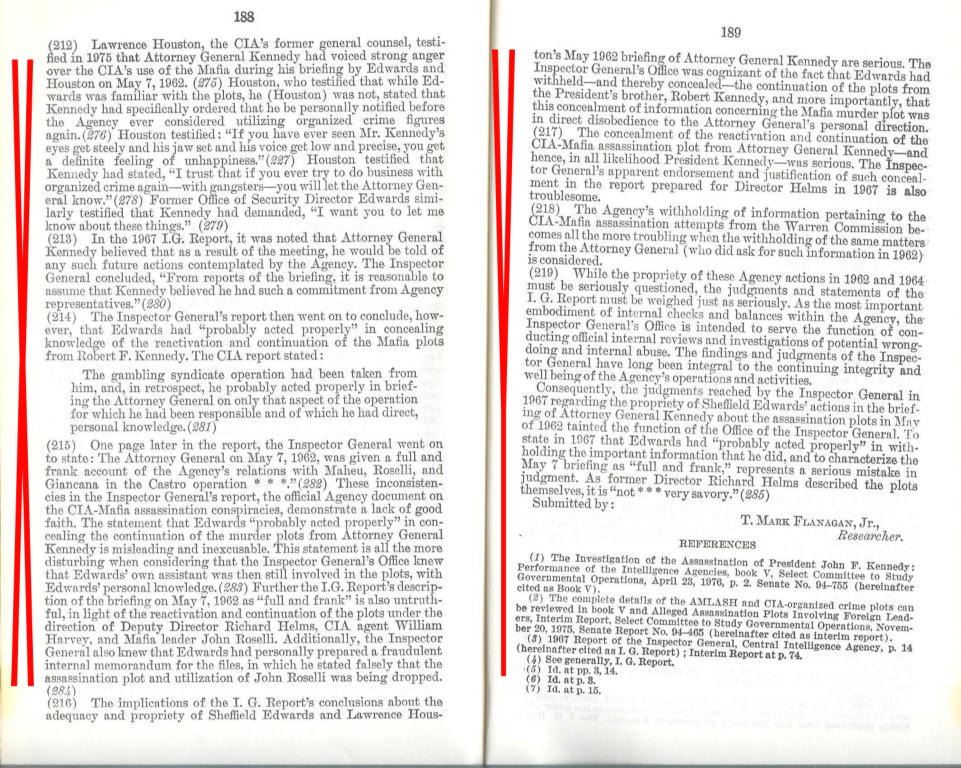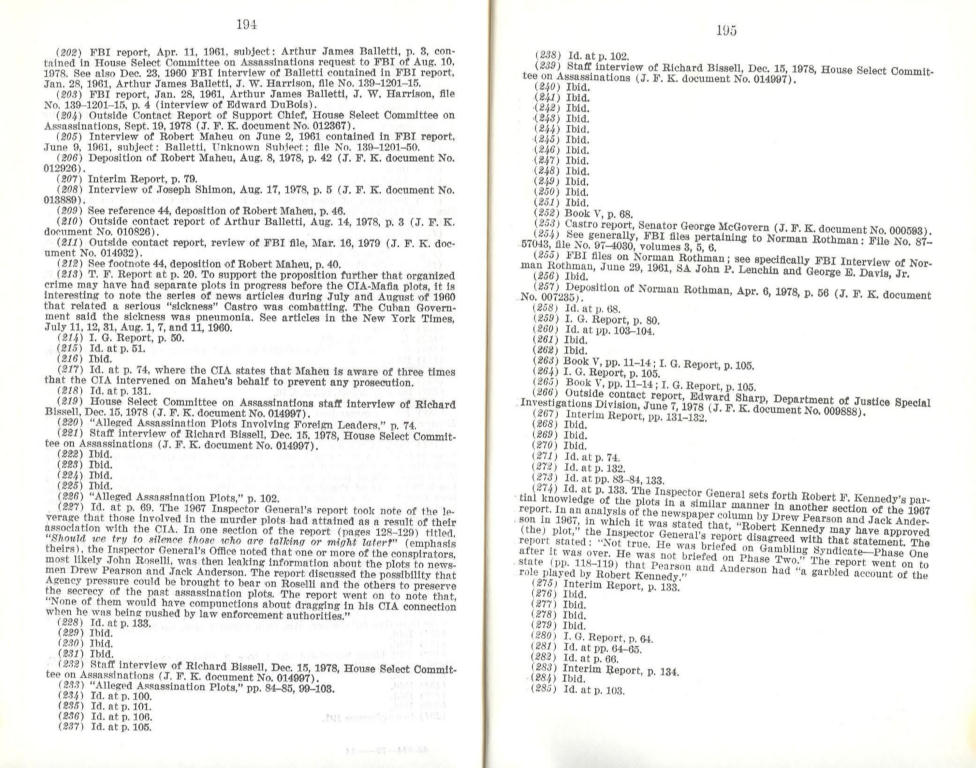
Did Mr Panetta admit to
lawmakers that the CIA had
misled Congress?
|
CIA Director Leon
Panetta has admitted that his agency
regularly misled Congress, six members of
the House Intelligence Committee have
alleged.
The claims are echoed in a letter from
the committee's Democratic chairman,
Sylvestre Reyes.
The allegations follow a claim by House
Speaker Nancy Pelosi that the CIA misled her
about interrogation methods.
A CIA spokesman has insisted that "it is
not the policy or practice of the CIA to
mislead Congress".
'Significantly lied to'
The six committee members, who are all
Democrats, alleged in a letter to Mr Panetta
that he "recently... testified... that top
CIA officials have concealed significant
actions from all Members of Congress and
misled members for a number of years from
2001 to this week".
"This is similar to other deceptions of
which we are aware from other periods," the
letter states.
In a separate letter, Mr Reyes alleged
that a "notification the Committee received
[from Mr Panetta] on 24 June 2009... [has]
led me to conclude that this Committee has
been misled, has not been provided full and
complete notifications and (in at least one
case) was significantly lied to".
The BBC's Jon Donnison in Washington says
that in recent months there has been much
debate over how much congressional leaders
were told during the Bush administration
about controversial CIA interrogation
techniques such as water-boarding.
In particular, our correspondent says,
Republicans have accused Mrs Pelosi, a
Democrat, of lying about how much she knew
about such methods.
Republicans say this latest accusation
from Mr Reyes in being used as a distraction
to shift attention away from Mrs Pelosi.
Mrs Pelosi insists that she was not told
that the CIA had used water-boarding on
prisoners, and that any suggestion by the
CIA that she had been notified is untrue.
The row takes place as Democrats in
Congress are attempting to push through new
rules governing who is allowed to declassify
secret information.
They want to give the chairmen of the
House and Senate Intelligence Committees the
power to open up classified information to
the other members of their committees.
The proposal is being fiercely opposed by
the Obama White House, which insists that
only the president should have the power to
declassify information.
6. CIA
ACTIONS IN CONCEALING THE REACTIVATION AND
CONTINUATION OF THE ASSASSINATION PLOTS FROM
ATTORNEY GENERAL ROBERT F. KENNEDY
(207) From an examination of the CIA's use
of organized crime in assassination
conspiracies against Castro, it appears that
the Agency concealed the continuation of
those plots in 1962 and 1963 from Attorney
General Robert F. Kennedy.
(208) As
already indicated in section II, part B,
Attorney General Kennedy had been told of
the pre-Bay of Pigs phase of the plots
during a CIA briefing on May 7, 1962.(267)
Rather than the CIA volunteering this
information about the existence of such
plots, the meeting had come about when
Attorney General Kennedy had inadvertently
learned that the CIA had secretly utilized
the services of former FBI Agent Robert
Maheu and Chicago Mafia leader Sam Giancana
a year earlier.(268) This information had
surfaced during the course of a wiretap
prosecution against Maheu; a prosecution the
Agency had warned might "result in most
damaging embarrassment to the U.S.
Government."(269)
(209) During the briefing CIA officials
Sheffield Edwards and Lawrence Houston
informed Kennedy about the Agency's use of
the underworld in a 1960-61 plot to
assassinate Castro.(270) As the CIA's own
evidence and internal records of the plots
has shown, as well as the Senate committee's
investigation of the matter, Edwards and
Houston told Attorney General Kennedy that
the assassination efforts against Castro had
begun during the Eisenhower administration,
had climaxed at the time of the Bay of Pigs
invasion, and "had been terminated
completely."(271)
(210) Yet,
as the CIA (272) and Senate evidence makes
clear, and as the committee's investigation
has confirmed, the CIA-organized crime plots
were actually being reactivated and
intensified at the very time that Agency
officials were telling Attorney General
Kennedy that they had been "terminated."
(273) In the I.G. Report, it was noted that:
The Attorney General was not
told that the gambling syndicate
(assassination) operation had already been
reactivated, nor, as far as we know, was he
ever told that CIA had a continuing
involvement with U.S. gangster
elements.(274)
(211) While
noting the accuracy and veracity of the
preceding conclusion from the I.G. Report
other statements in the I.G. Report that
seemingly attempt to justify, excuse, or
even deny the CIA's concealment of this
important information about the plots from
Attorney General Kennedy have been
disturbing.
Page 188
188
(212) Lawrence Houston, the CIA's former
general counsel, testified in 1975 that
Attorney General Kennedy had voiced strong
anger over the CIA's use of the Mafia during
his briefing by Edwards and Houston on May
7, 1962. (275) Houston, who testified that
while Edwards was familiar with the plots,
he (Houston) was not, stated that Kennedy
had specifically ordered that he be
personally notified before the Agency ever
considered utilizing organized crime figures
again.(276) Houston testified: "If you have
ever seen Mr. Kennedy's eyes get steely and
his jaw set and his voice get low and
precise, you get a definite feeling of
unhappiness."(227) Houston testified that
Kennedy had stated, "I trust that if you
ever try to do business with organized crime
again-with gangsters-you will let the
Attorney General know."(278) Former Office
of Security Director Edwards similarly
testified that Kennedy had demanded, "I want
you to let me know about these things."(279)
(213) In the 1967 I.G. Report, it was noted
that Attorney General Kennedy believed that
as a result of the meeting, he would be told
of any such future actions contemplated by
the Agency. The Inspector General concluded,
"From reports of the briefing, it is
reasonable to assume that Kennedy believed
he had such a commitment from Agency
representatives."(280)
(214) The Inspector General's report then
went on to conclude, however, that Edwards
had "probably acted properly" in concealing
knowledge of the reactivation and
continuation of the Mafia plots from Robert
F. Kennedy. The CIA report stated:
The gambling syndicate
operation had been taken from him, and, in
retrospect, he probably acted properly in
briefing the Attorney General on only that
aspect of the operation for which he had
been responsible and of which he had direct,
personal knowledge.(281)
(215) One page later in the report, the
Inspector General went on to state: The
Attorney General on May 7, 1962, was given a
full and frank account of the Agency's
relations with Maheu, Roselli, and Giancana
in the Castro operation * * *."(282) These
inconsistencies in the Inspector General's
report, the official Agency document on the
CIA-Mafia assassination conspiracies,
demonstrate a lack of good faith. The
statement that Edwards "probably acted
properly" in concealing the continuation of
the murder plots from Attorney General
Kennedy is misleading and inexcusable. This
statement is all the more disturbing when
considering that the Inspector General's
Office knew that Edwards' own assistant was
then still involved in the plots, with
Edwards' personal knowledge.(283) Further
the I.G. Report's description of the
briefing on May 7, 1962 as "full and frank"
is also untruthful, in light of the
reactivation and continuation of the plots
under the direction
of Deputy Director Richard Helms, CIA agent
William Harvey, and mafia leader John
Roselli. Additionally, the Inspector General
also knew that Edwards had personally
prepared a fraudulent internal memorandum
for the files, in which he stated falsely
that the assassination plot and utilization
of john Roselli was being
dropped.(284)(216) The implications of the
I.G. Report's conclusions about the adequacy
and propriety of Sheffield Edwards and
Lawrence Houston's
Page 189
189
May 1962 briefing of Attorney General
Kennedy are serious. The Inspector General's
Office was cognizant of the fact that
Edwards had withheld---- and thereby
concealed--- the continuation of the plots
from the President's brother, Robert
Kennedy, and more importantly, that this
concealment of information concerning the
Mafia murder plot was in direct disobedience
to the Attorney General's personal
direction.
(217) The concealment of the reactivation
and continuation of the CIA-Mafia
assassination plot from Attorney General
Kennedy-and hence, in all likelihood
President Kennedy- was serious. The
Inspector General's apparent endorsement and
justification of such concealment in the
report prepared for Director Helms in 1967
is also troublesome.
(218) The Agency's withholding of
information pertaining to the CIA-Mafia
assassination attempts from the Warren
Commission becomes all the more troubling
when the withholding of the same matters
from the Attorney General (who did ask for
such information in 1962) is considered.
(219) While the propriety of these Agency
actions in 1962 and 1964 must be seriously
questioned, the judgments and statements of
the I.G. Report must be weighed just as
seriously. As the most important embodiment
of internal checks and balances within the
Agency, the Inspector General's Office is
intended to serve the function of conducting
official internal reviews and investigations
of potential wrongdoing and internal abuse.
The findings and judgments of the Inspector
General have long been integral to the
continuing integrity and well being of the
Agency's operations and activities.
Consequently, the judgments
reached by the Inspector General in 1967
regarding the propriety of Sheffield
Edwards' actions in the briefing of Attorney
General Kennedy about the assassination
plots in May of 1962 tainted the function of
the Office of the inspector General. To
state in 1967 that Edwards had "probably
acted properly" in withholding the important
information that he did, and to characterize
the May 7 briefing as "full and frank,"
represents a serious mistake in judgment. As
former Director Richard helms described the
plots themselves, it is "not * * * very
savory."(285)
Submitted by:
T.
MARK FLANAGAN, Jr.,
T. MARK FLANAGAN, JR.
Download vCard
Download PDF
Partner,
Washington DC
1900 K Street NW
Washington, DC 20006-1108
TEL: 202.496.7553
FAX: 202.496.7756
EMAIL:
mflanagan@mckennalong.com
Profile
PROFILE
Mark Flanagan, Managing Partner of
McKenna Long & Aldridge, joined the firm in
1988 after serving as an Assistant United
States Attorney for the District of
Columbia. As Managing Partner, Mark
oversees the firm’s financial and
operational affairs. Mark assumed this
position in 2004, and finds “great
satisfaction in working with his fellow
partners and coordinating the business
aspects of running a large firm.”
Mark’s law practice involves defending
large corporations, small businesses and
individuals in civil fraud and white collar
criminal cases. He has defended clients in
all types of matters, including procurement
fraud, health care fraud, federal Food, Drug
& Cosmetic Act fraud, environmental crimes,
civil False Claims Act lawsuits, Customs
fraud, Foreign Corporate Practices Act cases
and Congressional investigations. Mark has
substantial experience in conducting
corporate internal investigations and making
voluntary disclosures to the government. He
also has extensive familiarity with the
United States Sentencing Guidelines.
Mark is a member of McKenna Long &
Aldridge’s White Collar Defense Group. He
helps coordinate joint initiatives between
the group and other departments of the
firm. He also has been a frequent speaker
on civil fraud, criminal and compliance
matters.
As an Assistant United States Attorney,
Mark served exclusively as a federal
criminal prosecutor. He tried over twenty
trials, argued a dozen appellate cases and
conducted numerous grand jury
investigations. In the late 1970s, Mark
also served on the staff of the Select
Committee on Assassinations of the United
States House of Representatives, which
investigated the death of President John F.
Kennedy.
As the parent of one boy and one girl,
Mark and his wife, Patricia, spend much of
their time outside the office involved in
their children’s activities. Mark
particularly enjoys coaching youth lacrosse
and playing golf
COMMUNITY AND CIVIC INVOLVEMENT
- President, Great
Falls Lacrosse Association
- Youth Lacrosse
Coach
- Council for Court
Excellence, Board Member
|

~RS~q~RS~~RS~z~RS~33~RS~)








